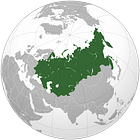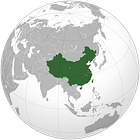Will Japan Have A Truly Independent And Sovereign Long-Range Strike Capability Against China?
🇨🇳 🇯🇵 Commentary
Commentary-themed posts are intended to broach or highlight a specific issue, not limited to recent and ongoing events. These posts will typically be much shorter and less detailed than analysis-themed posts.
In a recent post, I discussed recent reporting which indicates a previously unpublicized major American role in facilitating Ukraine’s most recent campaign targeting Russia’s energy infrastructure, a campaign that has been far more effective and consequential than previous Ukrainian strike campaigns as a result of what appears to be extensive American intelligence and targeting support.
As I mentioned in the above post, the saga includes an important lesson that is relevant beyond the Russia-Ukraine War: there is more to effective long-range strike capabilities than the mere existence of strike munitions of requisite range. Japan is currently making concerted efforts to develop its own sovereign long-range conventional strike—“counterstrike”—capabilities with the aim of deterring certain Chinese military actions and retaliating if deterrence fails.
Much can be said about this topic, but this post will simply highlight a dynamic that has received comparatively little public discussion to date: will Japan be able to independently acquire the relevant intelligence so as to effectively employ its forthcoming sizeable but nevertheless quite small—given the qualitative and quantitative aspects of China’s air defence capabilities—arsenal of long-range strike munitions against China without American intelligence and targeting support? I think it is a mistake to assume that Tokyo and Washington will have perfect preference alignment in wartime, not least in a situation in which, for example, Tokyo may want to retaliate for a Chinese attack in ways that Washington views to be a waste of finite resources/strike munitions. Japanese decision-makers may, for example, want to independently establish and sustain a “deterrence equation” following a Chinese missile strike against a military target in Japan that inadvertently results in considerable civilian casualties. Japan may, in such a situation, want to strike a target with greater symbolic than military importance.
Absent an independent and sovereign capacity to not only launch strike munitions against China but also acquire the relevant intelligence and other related capabilities, such as weaponeering, Japan may only have an independent/sovereign and effective long-range conventional strike—“counterstrike”—capability in name only. It goes without saying that a Japanese long-range strike capability that is dependent on and, as such, de facto operationally subordinate to, the American military is not a long-range strike capability that Tokyo will be able to primarily hold in reserve—as opposed to regularly employ/consume—to sustain Tokyo’s conception of a wartime deterrence equation vis-a-vis China.
In another recent post, I broached the question of whether the Philippines has become a first strike target for the Chinese military in the way that Japan, or at least American military bases in Japan, have long been widely assumed to be. The military balance in the Western Pacific is evolving in many respects, including what is likely to be—in relative terms—the gradually declining importance of Japan in American military planning and a Japan that will in the near future have a non-zero—but likely qualitatively and quantitatively inadequate—independent capacity through which to independently deter and retaliate against Chinese military attacks on targets in Japanese territory.
All things considered, I think that Japan’s interests are best served if the bulk of Japan’s strike munitions are, in effect, held in reserve over the course of a major conflict and used sparingly against China as required in tit-for-tat strikes. Such a posture for Japan’s strike capabilities is, I think, likely to be the most practical approach to deterring, for example, widespread Chinese strikes against electricity generation and transmission facilities in Japan in a major protracted conflict in the manner that Russia has undertaken against Ukraine, or attacks against Japanese oil refineries and other forms of militarily important national infrastructure more generally. Without a truly independent and sovereign long-range strike capability, which constitutes a lot more than the mere existence of strike munitions of requisite range, Japan’s strike munitions are likely to be de facto operationally subordinate to the American military and, as such, employed in ways that align with the United States’ wartime interests, interests that are only parochial but are also being shaped by the fast-evolving nature of American military strategy in the Western Pacific.



